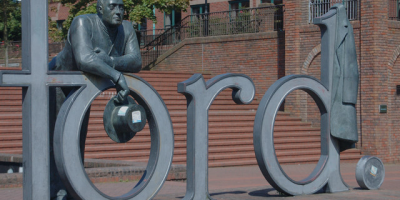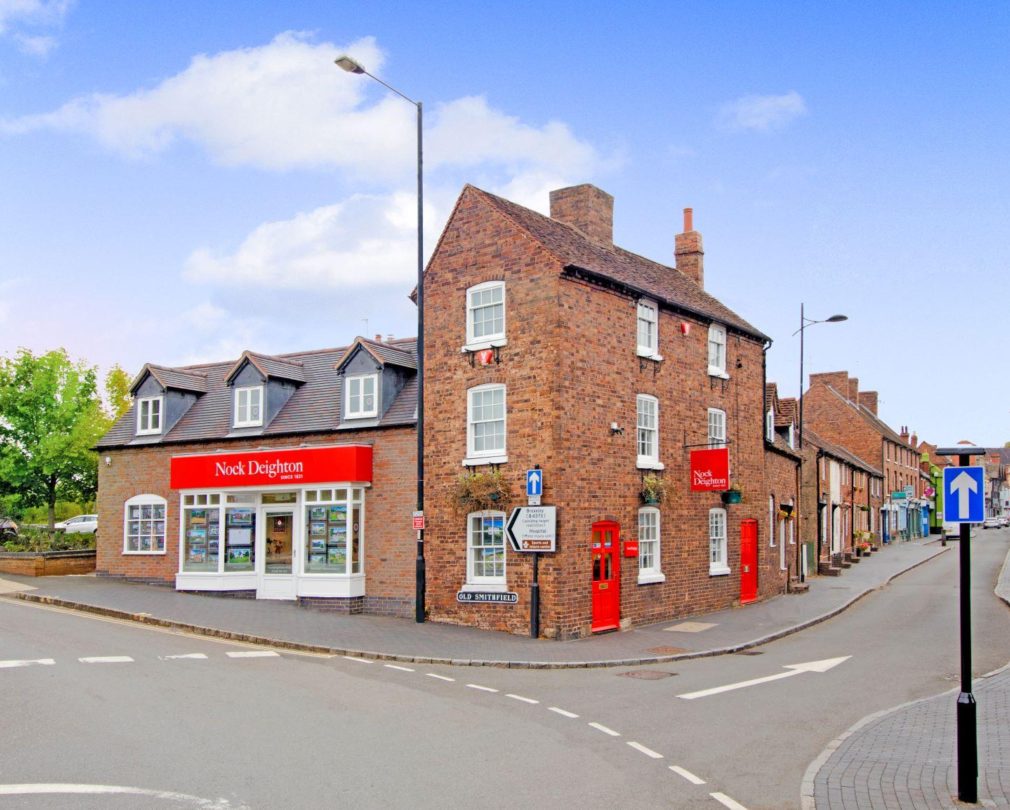
A Simple Guide to Property Auctions
A Simple Guide to Property Auctions
Property auctions are certainly on the increase all over the country. For sellers, this can often be the quickest way of selling to a large audience and obtaining the maximum price that someone is willing to pay. But we talk to many buyers and investors who are apprehensive about dipping their toe into this whole new way of buying (and selling), and in some cases this is due to ‘fear of the unknown’.
Property auctions are no longer just for houses that need complete renovation, or can’t be sold on the traditional market. All types of properties are sold via auctions, and all types of people buy them.

Five benefits to auction for vendors and buyers alike:
Buyers:
- Speed: property will be completed in 28 or 56 days from your solicitor receiving draft contracts
- Security: if the seller pulls out, auction fees are returned, and the seller is financially penalised. This also means no gazumping as the seller is fully committed to the successful bidder
- Transparency: all bids are made in the public domain
- Legal Pack: information required is produced before the property goes live so buyers can make an informed decision before bidding
- Investors: Property can be sold with tenants in situ providing an immediate return on investment. AST is added to the Legal Pack for transparency
Sellers:
- Speed: property will be completed in 28 or 56 days from the buyer’s solicitor receiving draft contracts
- Security: successful buyer pays non-refundable reservation fee committing them to the purchase. Auction brings together serious sellers and serious buyers with the fee paid at offer acceptance, committing each party to the transaction
- Transparency: If there are multiple buyers then all offers are in the public domain. It is also completely open as to what is being sold with information provided in the Legal Pack
- 0% Fees: Agency fees are covered by the buyer therefore no marketing costs are required
- Competitive Bidding: if the starting price is attractive enough to generate interest then transparent and competitive bidding can yield a better result
What is the difference between ‘Traditional Auction’ and ‘Modern Method of Auction’?
The key difference between the two is timescales, for both selling and completion.
- Traditional Auction
Until COVID restrictions were introduced, Traditional Auctions usually took place at a specified venue, such as a hotel or conference centre, where all interested parties attended (although bidders had the opportunity to make telephone/online bids). They have since taken place online, but using the same method of bidding against each other on a specified date and time.
With a Traditional Auction (also known as an “Unconditional Auction”), a guide or starting price will usually be given and the seller will usually set a reserve price which is the minimum price they are willing to accept – this reserve price is given within the property details.
Viewings
As when buying any property, you should always view a property before you bid.
Know what you are Buying
The seller will provide a legal pack for potential bidders to look at before the auction. This is put together by the seller’s solicitor and will typically include:
- Proof of Title
- Memorandum of sale
- Special conditions of sale
- Local search
- Land Registry search
- (if leasehold) a copy the Lease
Potential buyers can also carry out their own checks if required. All checks should be carried out before the auction as any defects or issues identified after exchange of contracts will not release the buyer from the purchase.
As with all property purchases, it is also advisable for potential buyers to have a survey carried out prior to the auction, especially with older properties, but this would be at their own cost. This may also be a requirement of the mortgage lender.
Can I make an offer prior to the auction?
Yes, some sellers will consider selling prior to the auction but only on the condition that an unconditional contract is exchanged, or a reservation fee is paid before the auction.
How do I register to bid before the auction?
To bid in an Auction Event you will need to complete and submit a registration form on the auction site ahead of the auction date. The auction provider will then verify your ID and confirm your method of payment prior to being fully registered. You will then be able to click and bid at any time 24/7 up to the end date of the auction.
On the Day of the Auction
Each lot varies; there is no set amount of time per lot although generally it is approximately 5-7 minutes per lot.
Once the gavel falls the buyer will put down a 10% deposit in addition to a non-refundable reservation fee (see below) and contracts will be exchanged. The buyer then has 28 days to pay the remaining 90% of the purchase price and complete the sale.
Whilst the majority of potential buyers at a Traditional Auction are cash buyers, if you are reliant on a mortgage to purchase the property, this must be agreed and a full mortgage offer in place before the auction.
Alternatively, a buyer can use other methods of finance to purchase the property initially to allow them more time to arrange a suitable mortgage product without facing any penalties for going over the 28 day limit. For example, a bridging loan is a short-term funding option which can be used the purchase the property on the day of the auction, then repaid through ‘re-financing’ when the mortgage offer is in place.
If the property does not reach this reserve price during bidding, the property will not be sold. However, interested buyers may be able to negotiate with the seller after the auction has taken place, especially if the highest bid was close to the reserve.
2. Modern Method of Auction
Modern Methods of Auction (also known as “Conditional Auctions”) are carried out online (similar to eBay).
The general process for viewings, legal pack and registration are the same as with a Traditional Auction.
With the help of the auctioneer, the seller can set rules for the auction, including a reserve price, start date and duration of the auction. This is typically 30 days or more, but can be shorter if the vendor requires a quick sale. All interested buyers must submit their offer online in the form of a ‘bid’, as many times as they wish during the 30 days. All bids are visible to all those who have registered, and anyone can submit as many bids as they choose, up to the finish date and time.
56 days to complete
There is a far more flexible completion time with the Modern Method of Auction; allowing for buyers who need a mortgage. This is usually set at 56 days (28 to exchange contracts, followed by 28 days to complete).

What fees do I pay?
In property auction sales, the seller does not pay any fees; the winning bidder pays a non-refundable reservation fee (this can be anything up to 5% of the purchase price, or a maximum of £6,000), which must be paid when the auction ends to reserve the property for the buyer.
Reservation fees should always be visible with the marketing information. It is of course advisable for buyers to work this into their maximum price before bidding.
A reservation agreement must also be signed. Reservation fees are not deducted from the overall purchase price.
Set your limit before bidding and stick to it!
As with buying any item via an auction, our best advice is to decide what it is worth to you (and take independent advice), set your maximum bid and stick to it. If you are the highest bidder when the hammer goes down, you are legally committed to paying the deposit and reservation fee. Furthermore the seller may sue you for the balance owed and any further losses caused.
We hope this has helped to quell any fears of property auctions. Further advice and a list of our auction properties currently available can be found here: https://nockdeighton.iamsold.co.uk/properties
Or contact our Auction Expert, Andrew Ainge on 01746 767767 or [email protected]










 Payment
Payment












